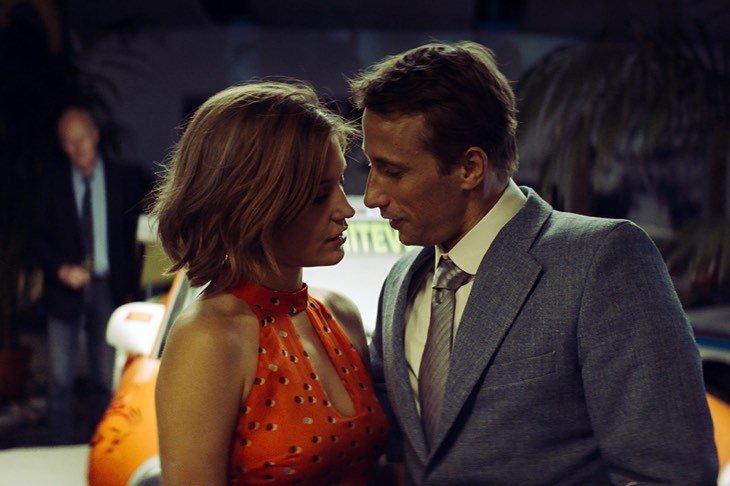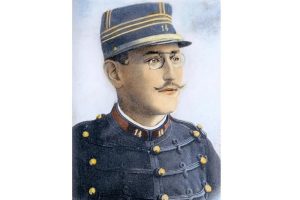Racer and the Jailbird
is a terrible name for a film. It sounds like an unsolicited tribute to that sorrily misbegotten Seventies’ genre, the action-comedy buddy movie—like Freebie and the Bean (1974) or Smokey and the Bandit (1977). But it is not.
Nor, though the trailers for Racer and the Jailbird misrepresent it as such, is it a sexed-up, souped-up heist movie for knuckleheads and chuckleheads, like Gone in Sixty Seconds or Baby Driver, but with sexy Europeans instead of Nicholas Cage looking like he’s been shot with an elephant tranquilizer, and then put in someone else’s dentures because he’s still a bit woozy.
Racer and the Jailbird is none of these things, probably because it isn’t really Racer and the Jailbird at all. Its original French title is Le Fidèle, ‘The Loyal One’. Although it is a genre film in a way, and it has thieves who hotrod their getaway vehicles and a female lead who feels the need for speed, it has about as much in common with Hollywood heist movies as Wagner’s Tristan und Isolde does with John Cougar Mellencamp’s ‘Jack & Diane’. It is a brilliantly played, tensely shot, and consistently surprising heartbreaker of a film about losers, love and the tragic loyalty of losers in love.
Bénédicte (Adèle Exarchopoulos), a would-be racing driver, is the daughter of a wealthy and widowed Belgian construction engineer. Gino (Matthias Schoenaerts), brutalised as child by his father, works in armed robbery, but he tells her he is a car dealer. They fall in love, but without realising that the other is also addicted to adrenalin and the promise of a big crash. Each is also enamored of the other’s family. For Gino, Bénédicte and her family mean the straight life, and no more lying. For Bénédicte, Gino’s substitute family of hedonistic louts and molls have the warmth that left her family when her mother died. But there are no escape routes, and every promise of freedom is an acceleration towards death.
This does sound like a genre film, but small clues tell you that the director, Michaël Roskam, has something else in mind. This is the first film with racing cars that doesn’t show redlining rev counters or tyre smoke at track level. Instead, the camera stays on ‘Bibi’ as she charges forward in her helmet, like a knight with a death wish. Nor does ‘Gigi’ jump on the counter on the occasions when he goes to work, shoot at the ceiling and shout ‘Hands up!’ That said, the racing and robbery genres are handled skilfully, as Bibi realises that Gigi is a criminal and Gigi placates her by promising that he’s going to do one last big robbery. Of course, that blows up in the gang’s face, literally in this case.
At this point, a genre piece would head to the doomed lovers’ last stand, and grandly like Bonnie and Clyde. These lovers are doomed, but there is no last stand, only an extended agony of separation, sorrow and loneliness, and a series of false floors, all of them surprising, and each more painful than the last. The second hour is more devastating than a 15-year stretch for armed robbery, and the futility and cruel surprise of the last scene has the weight of a Thomas Hardy novel. The effect is less Smokey and the Bandit and more Tristan und Isolde, with a chorus of Albanian gangsters.
I don’t want to give the plot away, but the ending is tragic — properly tragic, as opposed to merely very sad indeed: a Wagnerian Liebestod, a ‘love-death’ consummated to the revving of engines and the barking of fighting dogs. Racer and the Jailbird is so good that it will probably be remade in Hollywood, and probably with a happy ending that will ruin it. Even then, just as love is eternal in death, so La Fidèle will remain quite possibly the best Belgian film of the year.


















